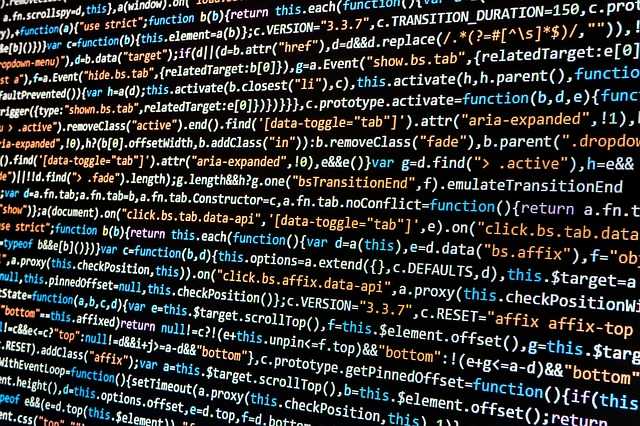Job Meter = Medium
C C++ in detail
60 Hours
Online Instructor-led Training
GBP 60

About this Course
Course description
The course fully covers the basics of programming in the “C” programming language and demonstrates fundamental programming techniques, customs and vocabulary including the most common library functions and the usage of the preprocessor. Learning objectives To familiarize the trainee with basic concepts of computer programming and developer tools. To present the syntax and semantics of the “C” language as well as data types offered by the language To allow the trainee to write their own programs using standard language infrastructure regardless of the hardware or software platform.
The course fully covers the basics of programming in the “C” programming language and demonstrates fundamental programming techniques, customs and vocabulary including the most common library functions and the usage of the preprocessor. Learning objectives To familiarize the trainee with basic concepts of computer programming and developer tools. To present the syntax and semantics of the “C” language as well as data types offered by the language To allow the trainee to write their own programs using standard language infrastructure regardless of the hardware or software platform.
Course outline
Introduction to compiling and software development
Basic scalar data types and their operators
Flow control
Complex data types: arrays, structures and pointers
Structuring the code: functions and modules
Preprocessing source code
“C++ programming language”
Description:
In this class, we will learn the basics about C++ programming language such as variables, data
types, arrays, pointers, functions and classes etc.
Objective:
At the end of the class, we expect people to have a good understanding about the concept of
object-oriented programming using C++, be able to write and read basic C++ code.
Prerequisite:
No prior knowledge about C++ is required, but people are expected to have some basic
knowledge about computers, some knowledge about one or two other programming languages
such as Perl, PHP, Python or Java etc is preferred.
C C++ in detail
Course Details & Curriculum
Chapters:
Absolute basics
Languages: natural and artificial
Machine languages
High-level programming languages
Obtaining the machine code: compilation process
Recommended readings
Your first program
Variable – why?
Integer values in real life and in “C”, integer literals
Data types
Floating point values in real life and in “C”, float literals
Arithmetic operators
Priority and binding
Post- and pre -incrementation and -decrementation
Operators of type op=
Char type and ASCII code, char literals
Equivalence of int and char data
Comparison operators
Conditional execution and if keyword
printf() and scanf() functions: absolute basics
Flow control
Conditional execution continued: the “else” branch
More integer and float types
Conversions – why?
Typecast and its operators
Loops – while, do and for
Controlling the loop execution – break and continue
Logical and bitwise operators
Arrays
Switch: different faces of ‘if’
Arrays (vectors) – why do you need them?
Sorting in real life and in a computer memory
Initiators: a simple way to set an array
Pointers: another kind of data in “C”
An address, a reference, a dereference and the sizeof operator
Simple pointer and pointer to nothing (NULL) & operator
Pointers arithmetic
Pointers vs. arrays: different forms of the same phenomenon
Using strings: basics
Basic functions dedicated to string manipulation
Memory management and structures
The meaning of array indexing
The usage of pointers: perils and disadvantages
Void type
Arrays of arrays and multidimensional arrays
Memory allocation and deallocation: malloc() and free() functions
Arrays of pointers vs. multidimensional arrays
Structures – why?
Declaring, using and initializing structures
Pointers to structures and arrays of structures
Basics of recursive data collections
Functions
Functions – why?
How to declare, define and invoke a function
Variables' scope, local variables and function parameters
Pointers, arrays and structures as function parameters
Function result and return statement
Void as a parameter, pointer and result
Parameterzing the main function
External function and the extern declarator
Header files and their role
Files and streams
Files vs. streams: where does the difference lie?
Header files needed for stream operations
FILE structure
Opening and closing a stream, open modes, errno variable
Reading and writing to/from a stream
Predefined streams: stdin, stdout and stderr
Stream manipulation: fgetc(), fputc(), fgets() and fputs() functions
Raw input/output: fread() and fwrite() functions
Preprocessor and complex declarations
Preprocessor – why?
#include: how to make use of a header file
#define: simple and parameterized macros
#undef directive
Predefined preprocessor symbols
Macro operators: # and ##
Conditional compilation: #if and #ifdef directives
Avoiding multiple compilations of the same header files
Scopes of declarations, storage classes
User defined types-why?
Pointers to functions
Analyzing and creating complex declarations
C++ Course Outlines:
Introduction
What is C++?
Why C++?
C and C++
Exception Handling
Object Oriented Programming
Standard Template Library
Types and declarations
Types
Booleans
Integer Types
Floating-Point Types
Sizes
Void
Enumerations
Pointers, Arrays and Structures
Pointers
Arrays
Pointers into Arrays
Constants
References
Pointers to void
Structures
Expressions and Statements
A Deck Calculator
Operator Summary
Statement Summary
Comments and Indentation
Functions
Function Declarations
Argument Passing
Value Return
Overloaded Function Names
Default Arguments
Pointer to Function
Macros
Namespaces and Exceptions
Namespaces
Exceptions
Source Files and Programs
Separate Compilation
Linkage
Using Header Files
Programs
Classes
Classes
Access Control
Constructors
Member functions
Static members
Destructors
Memory allocation
Member initialization
Operator overloading
Introduction
Operator Functions
A Complete Number Type
Conversion Operators
Friends
Large Objects
Essential Operators
Subscripting
Functions Calls
Dereferencing
Increment and Decrement
A String Class
Derived class
Introduction
Derived Classes
Abstract Classes
Design of Class Hierarchies
Class Hierarchies and Abstract Classes
FAQ
Will this course help me clear the certification exam? +
Which is better - Self-paced training or Instructor-led training? +
Who are the trainers? +
What if I miss a class? +
How will I execute the practical? +
Is the course material accessible after completion of the course? +
Is there any offer/discount that I can avail? +
Will I get a refund if I cancel my enrollment? +
What if I have queries after completion of the course? +








